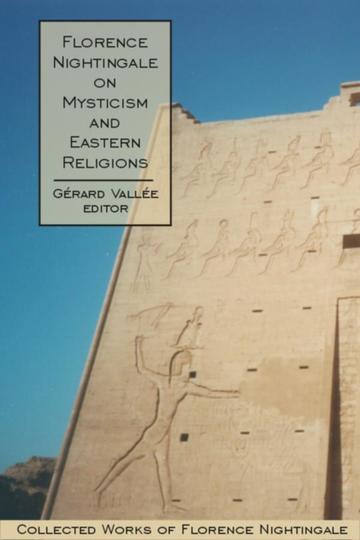Mysticism and Eastern Religions, the fourth volume in the Collected Works and the third on Nightingale’s religion, begins with the publication for the first time of Florence Nightingale’s Notes on Devotional Authors of the Middle Ages, translations from and comments on the medieval (and some later) mystics who nourished her own life of faith. Next come her annotations of and comments on the Imitation of Christ, a book to which she turned in times of distress. The largest part of the volume consists of her Letters from Egypt, written 1849-50, a significant period in her own intellectual and spiritual development. Here we provide (for the first time) complete publication and include (also for the first time) material preparatory for the trip and reflections on it over the later years. The last section reports Nightingale’s correspondence and journal notes on Eastern religions, mainly Hinduism.
Currently, Volumes 1 to 11 are available in e-book version by subscription or from university and college libraries through the following vendors: Canadian Electronic Library, Ebrary, MyiLibrary, and Netlibrary.
Gérard Vallée is professor emeritus of religious studies at McMaster University in Hamilton, Ontario (Canada). He studied in Québec and Germany, and worked in the fields of history of Christianity and philosophy of religion. He has also taught in Vietnam, India, and Nigeria. His publications include A Study in Anti-Gnostic Polemics (WLU Press, 1981), The Spinoza Conversations between Lessing and Jacobi (1988), The Shaping of Christianity 100–800 (1999), and Soundings in G.E. Lessing’s Philosophy of Religion (2000). He has been involved in the editing of Nightingale’s Collected Works since 1998.
[I]t is clear that this is an academic project of the highest importance and integrity. It will have an impact on the work of scholars far beyond the immediate field of health history. Nightingale's interests were wide-ranging and her correspondence included some of the leading thinkers of her day....The editing of these volumes is exemplary. Every reference has been followed up, including the identification of minor dramatis personae. Important personalities are accorded short biographies. On every page there are biblical allusions, which are faithfully identified. Each thematic section has an introductory essay and these are amplified by a full outline of Nightingale's life and thought in volume 1. This project makes a major contribution to scholarship which will be of permanent value.
''The Collected Works will allow us to see for the first time the full complexity of this extraordinary and multifacted woman. It will be a tool of enormous value not only to Nightgale scholars and biographers, but also to historians of a wide variety of aspects of Victorian society: war, the army, public health nursing, religion, India, women's issues and so on.''
The Nightingale project ranks with both the Gladstone diaries and the Disraeli letters as a major undertaking in the field of Victorian-era scholarship, and therefore is of surpassing value to historians of the period, as well as to general readers.
The Collected Works will allow us to see for the first time the full complexity of this extraordinary and multifacted woman. It will be a tool of enormous value not only to Nightgale scholars and biographers, but also to historians of a wide variety of aspects of Victorian society: war, the army, public health nursing, religion, India, women's issues and so on.
The details and explications of her views...are presented in carefully annotated and insightful editorial discussions....[These volumes] provide a more complete understanding of this complex woman, extending our appreciation of her much beyond the 'The Lady with the Lamp' legend.... The product of rigorous scholarship, of meticulous historical research--and a labour of love.



